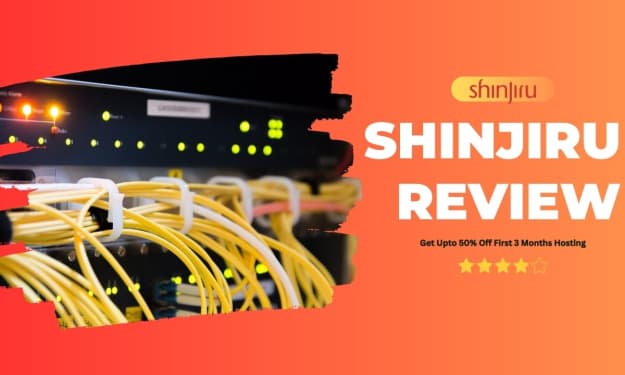
Are you in need of a reliable hosting solution but hesitant to commit with a credit card?
Look no further, as free VPS (Virtual Private Server) options are here to fulfill your hosting needs without requiring any financial information upfront.
In this article, we will explore the concept of free VPS, start into the best options available.
Whether you're a student looking for a cost-effective hosting solution or simply in need of a temporary server, this guide will help you make an informed decision.
Also Read: How to Set Up a VPS for Forex Trading
#4 Best Free VPS Hosting Providers
1. UltaHost
Ultahost offers reliable and feature-rich free VPS hosting solutions. With Ultahost, you can enjoy the benefits of a virtual private server without any upfront costs.
Features:
- Instant Activation
- Affordable Price
- 55 Seconds Deployment
- Best-in-Class Performance
- Unmetered Traffic
2. Kamatera
Kamatera is a leading provider of cloud services, offering a free VPS option to users who want to experience their high-performance infrastructure.
Features:
- Cloud Servers
- Cloud Private Network
- Cloud Firewall
- Cloud Block Storage
- Cloud Load Balancer
- Managed Cloud
3. Ionos
Ionos, formerly 1&1 IONOS, offers a free VPS hosting solution that combines reliability, performance, and ease of use.
Features:
- Security
- Performance
- Server location
- Limited webspace or storage
- Operating system choice
4. VPS Server
VPS Server offers a free VPS hosting solution that caters to various needs, including web hosting, development, and testing.
Features:
- Full Root Access
- Deploy In Seconds
- DDoS Protection
- Storage replication
- Excellent fast NVMe SSD
- Pre-configure templates
- Customer Support
- Secure Solution
Setting up a Free VPS
Setting up a free VPS typically involves the following steps:
Choose a Free VPS Provider: Research and select a reliable provider that offers free VPS hosting services.
Sign Up for an Account: Visit the provider's website and sign up for a free account. Provide the required information, such as your name, email address, and sometimes payment details (for verification purposes only).
Verify Your Account: Some providers may require you to verify your account by confirming your email address or completing additional steps.
Select Your Server Configuration: Choose the desired server configuration, including the operating system (Linux or Windows) and server specifications (CPU, RAM, storage).
Configure Your VPS: Set up your VPS by selecting additional options, such as data center location and any extra features or add-ons available.
Deploy Your Virtual Machine: Once you have configured your VPS, deploy the virtual machine by initiating the setup process. This may involve clicking a button or following specific instructions provided by the provider.
Access Your VPS: After the deployment process, you will receive the necessary credentials to access your VPS. This typically includes an IP address, username, and password.
Connect to Your VPS: Use a remote desktop protocol (RDP) client or SSH client to connect to your VPS. Enter the provided IP address, username, and password to establish a connection.
Configure and Customize: Once connected to your VPS, you can configure and customize the server according to your needs. Install additional software, set up security measures, and optimize server settings as required.
Transfer and Manage Files: Use file transfer protocols (FTP), secure copy (SCP), or file manager tools to transfer files to and from your VPS. This allows you to upload your website files or any other data you need.
Test and Verify: Ensure that your VPS is functioning correctly by testing the deployed applications, websites, or services. Verify that all components are working as expected.
Monitor and Maintain: Regularly monitor your VPS for performance, security, and any necessary updates or maintenance tasks. Keep your VPS up to date with the latest security patches and software updates.
Benefits of Using Free VPS Hosting
- Access to powerful hosting without the need for a credit card
- Cost-effective solution for individuals with limited budgets
- Ideal for testing applications or websites before investing in paid hosting
- Provides a temporary hosting solution for small-scale projects or personal use
- Offers an opportunity to familiarize yourself with VPS functionality and features
- Can be used for educational purposes, allowing students to gain practical experience.
Limitations
- Customer support may be limited or slower compared to paid hosting options.
- Some free VPS providers may have restrictions on the types of applications or services that can be run on their servers.
- Free VPS plans may have usage restrictions or limitations on the duration of the free offering.
Conclusion
Ending free VPS options provide a convenient and cost-effective way to access powerful hosting without the need for a credit card.
By understanding the benefits, limitations, and available providers, you can make an informed decision based on your specific requirements.
Whether you're a student looking for educational opportunities or an individual seeking temporary hosting, free VPS can be a valuable resource.






Comments
There are no comments for this story
Be the first to respond and start the conversation.